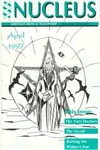After his first two children died at birth due to a rare medical condition, Brendan McCarthy began to investigate fertility treatments to ascertain which if any were compatible with the Christian faith. This book grew out of that research. In it he reviews the history of the Warnock Report which led to the Human Fertilisation and Embrology Act of 1990 - and argues that many of the Christian submissions did not argue from a clearly Christian worldview.
The book begins with a thorough review of the various ways in which Christian moral theologians have grappled with questions of morality and authority. A review of the legal background to Warnock leads to an examination of the moral basis on which a Christian contribution can be made, and explores what legitimate impact it should have upon society. We are then asked to examine what authority the Bible claims to have and whether it is acceptable to appeal to Holy Scripture for guidance in moral problems that were never even conceived of by the original writers. This is to build a platform for later debates.
A verse-by-verse commentary follows; of almost all the verses in the Bible which refer either directly or indirectly to the status of the human embryo. Several different interpretations are given in most instances. This is followed by an equally rigorous evaluation of how different theologians have approached embryology and fertility through nineteen centuries of Christianity.
Only in the latter half of the book do we see all the principles being tied together to reveal a biblical understanding of sexuality, artificial insemination by husband (AIH) or donor (AID), in-vitro fertilization (IVF), surrogacy and embryo storage. Rather than simply state his own beliefs throughout, the author instead presents the arguments cited by different denominations and organisations both for and against the various medical practices mentioned. He then analyses the arguments in each case to assess their strengths and weaknesses before revealing his own conclusions.
This is a scholarly work that serves not only as a companion to the Warnock Report, but as a guide to understanding biblical and Christian moral philosophy. It deserves to be read not simply by those who are interested in moral issues surrounding fertility treatment, but by the wider audience who are looking for a grounding in the principles of Christian ethics.
Reviewed by
David Pitches
Clinical Medical Student
King's College Hospital































